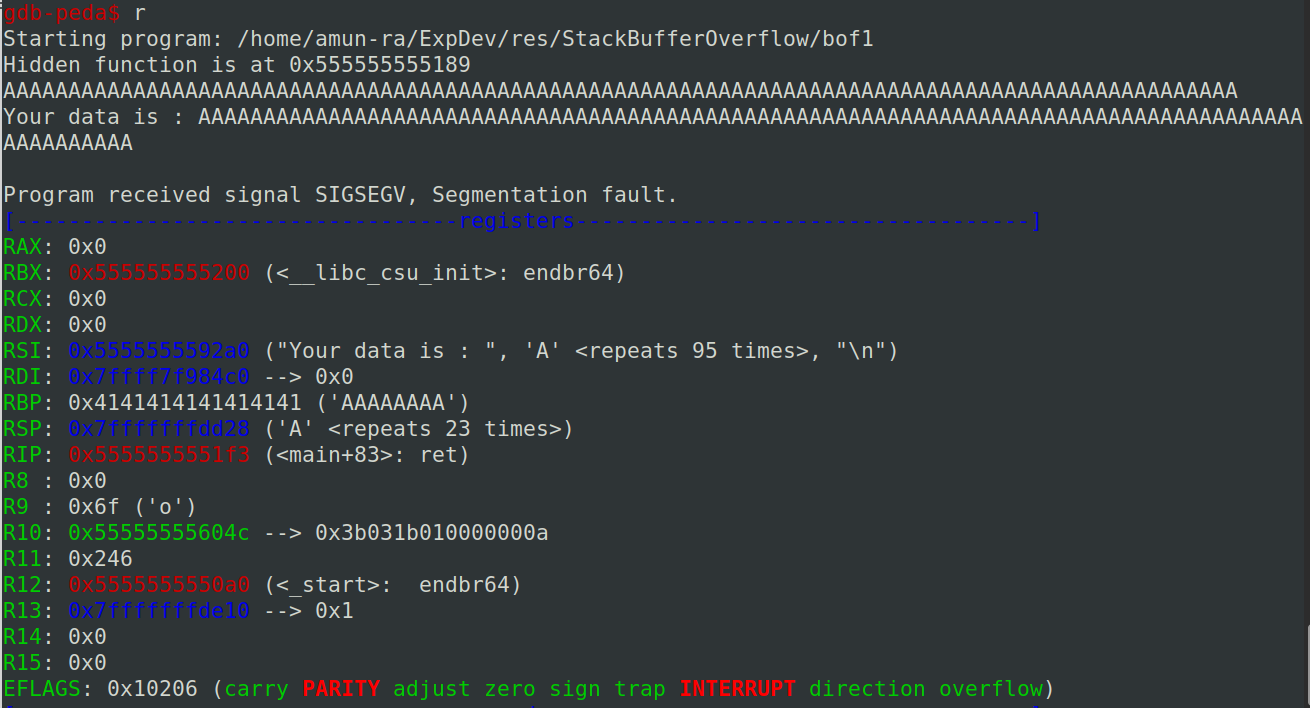

- #STACK SMASHING DETECTED USING STRCAT SERIAL#
- #STACK SMASHING DETECTED USING STRCAT CODE#
- #STACK SMASHING DETECTED USING STRCAT PC#
But regardless, the canary isn't part of your code and isn't accessible to it. If the canary has been altered, you get the message you saw, because it's likely that the return address will have been altered also. To catch this error, the compiler can insert code that 1) allocates and writes a "canary" - a known value - just after the return address, and 2), checks the canary for damage just before the function returns. Then, when the function tries to return, instead of jumping to the code that called the function, the MCU uses the damaged return address and jumps to. If I start writing into the array, and continue past its length, I'll eventually overwrite other automatic locals, my parameters, and and my return address. Its zero-th element is in the lowest address of the allocated space, and subsequent elements are at successively higher addresses. Then any variables allocated during the function execution are allocated, still building downward.Īssume one of those allocated variables is an array. Then, building downwards, the call parameters are put on the stack and become local variables. Tl dr: The message probably means your function is overwriting its array:Ī stack overflow is caused by a stack that grows downward into the allocated heap space, either causing damage to data within the heap, or code using that heap space causing damage to the contents of the stack.īut "stack smashing" refers to damage caused by function code writing past the bounds of an automatic local variable and damaging the stack contents, typically including the function's return address.Ī function's stack-frame begins with the return address - the address following the instruction that calls the function, i.e., the address of the next instruction to be executed after the function returns. Static boolean bLastButtonState = bButtonState Ĭlient.publish(TEMA_PUBLICA_ESTAT_BOTO, "UNPRESSED") Ĭlient.publish(TEMA_PUBLICA_ESTAT_BOTO, "PRESSED") Īnd finally here's an example of my program running and giving the error mentioned: Connecting to WiFi network
#STACK SMASHING DETECTED USING STRCAT SERIAL#
VModeTxRxRS485(RS485Receive) // RS485Receive is a 0, and vModeTxRxRS485 controls the DE/RE bits for the Max485ĭelay(1000) // give me time to bring up serial monitorīoolean bButtonState = !digitalRead(button) PinMode(SSerialTxControl, OUTPUT) // hardwired to GPIO_R2

Modbus transmission: void vModbusTx(unsigned char *uc, int nLen)
Serial.println("Trama amb CRC incorrecte") Serial.println("Trama amb CRC correcte") UcSt = (unsigned char)modbusData.read() įor (i = 0 i > 8) = ucSt & (byte)(uiCRC & 0xFF) = ucSt) Modbus reading with loop: void vReadingModBus() I'm pretty new to Arduino, so I don't really understand what could be causing this stack overflow. I tried debugging my program and the error happens when my program comes back from the function that has my reading modbus loop.
#STACK SMASHING DETECTED USING STRCAT PC#
But when my ESP32 receives the answer, I get the following error: Stack smashing protect failure!Ībort() was called at PC 0x400dc860 on core 1

Whenever I send a signal there's no problem, the ADAM receives it correctly and sends the answer. I'm also using Node-RED to send the input signals (reading the digital inputs on the ADAM or sending signals to the digital outputs). I'm trying to use the ESP32 as a master to and the ADAM as a slave. I'm doing a project using an ESP32 TTGO with LoRa, the Max485 and a WELLPRO ADAM 8082 for Modbus communication.


 0 kommentar(er)
0 kommentar(er)
